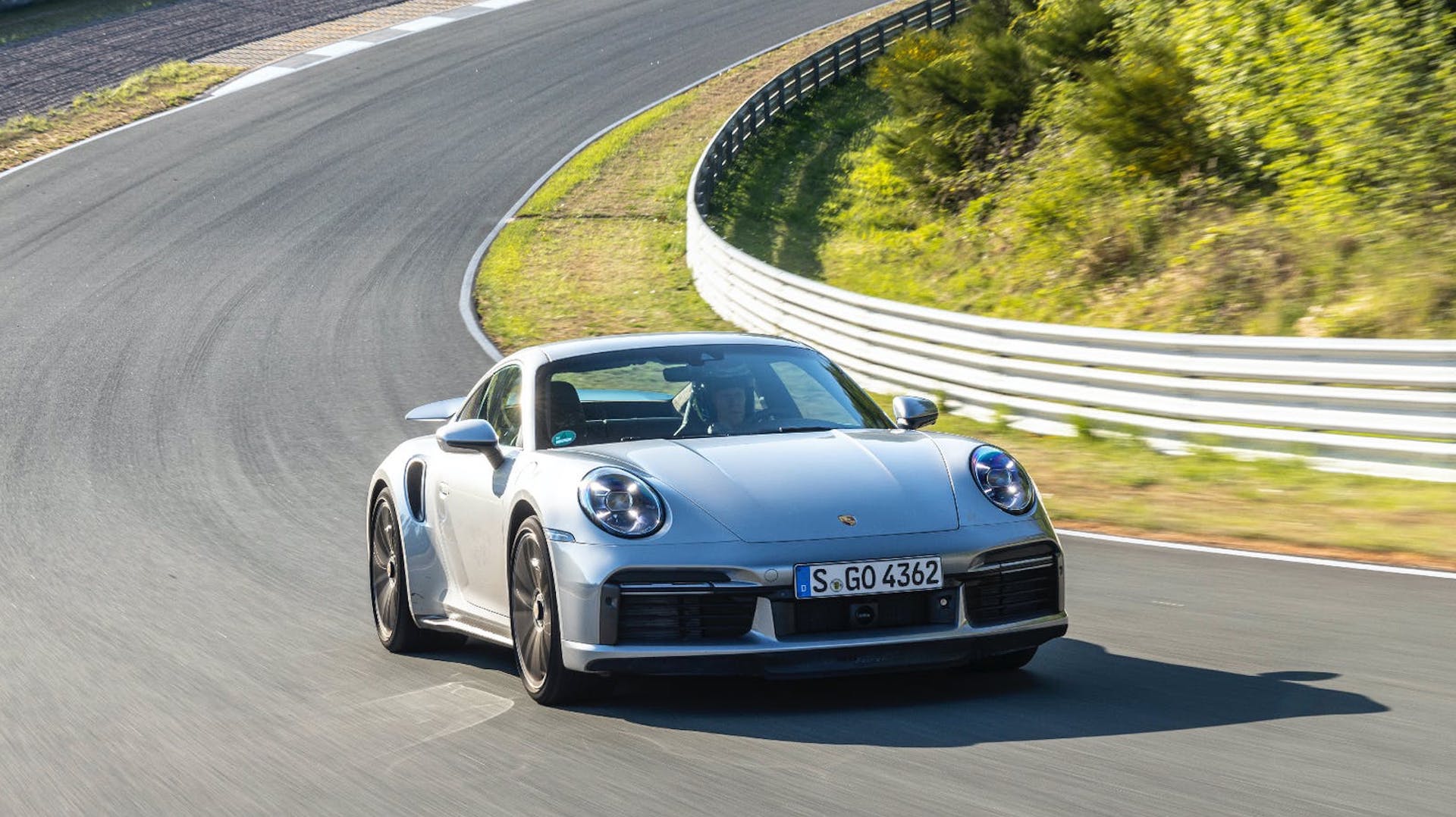

The Euro 7 regulations are supposed to kick in for 2026 and so far promise to be the strictest to date regarding real-world emissions data—not just what can be replicated in a lab. Porsche’s Frank Steffen-Walliser, the vice president of the 911 and 718 lines, recently explained to Wheels that Euro 7 sets a limit on power per liter of engine size, thus scrapping the current solution of making smaller and smaller cylinders pump out more power with forced induction.
“We will see a big change because it means for everybody, new engines and we will see bigger displacements coming back again,” Walliser told Wheels.
“I expect 20 percent more displacement on average for these Euro 7 capable engines. A lot of manufacturers will jump from four to six, from six to eight [cylinders],” he continued.
Walliser also claims that these larger engines won’t have the effect the EU wants, but rather, the opposite, explaining to Wheels:
The regulations are completely counterproductive to CO2 regulations, so this will go up.
You cannot fulfill all the standards without spending fuel. It sounds crazy but it’s a technical fact at the moment.
This new regulation is really difficult to fulfill because we will have different cold start emissions side and bigger catalytic converters. When I’m talking bigger, I’m talking a factor of three to four times more, so there will be a small chemical industrial factory in the car to really control this.
His hands are pretty tied. No one wants to see a new 911 with a dramatically reduced amount of horsepower, and the same goes for any other automaker. We live in a world where a 243-horsepower minivan is completely normal—who wants to go back to a time when it wasn’t?
The other solution not being discussed here which is probably on the EU’s brain is the ongoing push towards electrification. Could you pair a tiny, less powerful engine with electric motors instead of a turbo and come out with as much power as your current turbocharged engine? Probably. It wouldn’t have the big sound that many enjoy, but it’d be something.
Either way, Walliser knows this means new engines for the 911 across the board, and he’s not optimistic about being able to keep the naturally aspirated jewel of the 911 range, the GT3, as a big naturally aspirated engine.
“At the moment, we only see a turbo solution. Naturally aspirated, not really,” Walliser told Wheels. “Now maybe you are in the right part of the world, in Australia. This is a European solution. It [natural aspiration] could work in other parts of the world, as Australia is close to the US regulations that could work in the future.”
Getting a 911 GT3 just for specific, non-European markets might be a deal-breaker based on the research and development budget required for a smaller buyer pool.
“There will come a day, within the next 10 years, when we have to say ‘Now this is the last of its kind,'” Walliser explained.
As an interesting sidenote, Walliser did mention to Wheels that he would have made the 992 “a little more sporty” and “maybe a little smaller” if he could do-over the 992 with a clean slate. Do you know what’s also as fun with less power? Less weight. I’m just saying, man.
Feedback on these upcoming Euro 7 rules is open until June 3 here, in case you’d like to sound off on this.
Got a tip? Send us a note: tips@thedrive.com